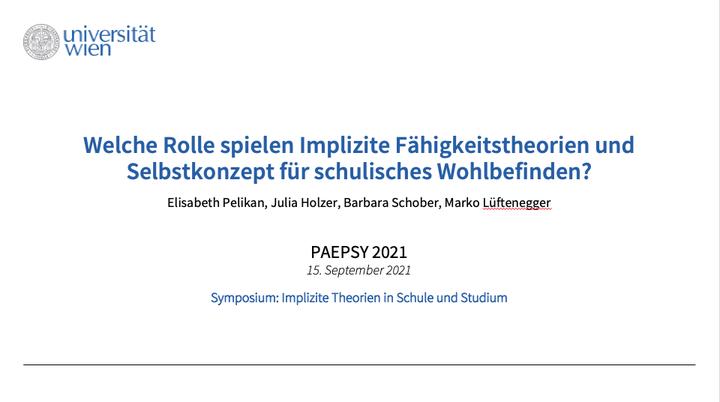Presentation on Implicit Theories at PAEPSY 2021
 Screenshot from Powerpoint
Screenshot from PowerpointAbstract
Fundamental core assumptions about the malleability of human traits are referred to as Implicit Ability Theories. In this context, human traits such as intelligence, ability, or volition are understood to be mutable (incremental theories) or immutable (entity theory). Implicit ability theories are considered to be central factors influencing students learning behavior and achievement. These effects are mediated in cognitive meaning systems through self-referent assessments of competence. In addition to learning behavior and achievement, academic well-being has come into focus in recent years as a central goal of schools and instruction. However, studies on connections between implicit theories and well-being are scarce. Existing work predominantly considered well-being as the absence of pathological features such as stress or depression. In contrast, recent models from positive psychology, such as the EPOCH model, conceptualize well-being in adolescence as a multidimensional construct characterized by the positive traits of engagement, perseverance, optimism, connectedness, and happiness. However, the focus on school is also missing from this line of research. The present study examines associations between incremental Implicit Ability Theories, academic self-concept, and context-specific well-being (EPOCH) of students. The results showed positive associations of incremental ability theory with self-concept as well as with all five EPOCH dimensions. The effects of incremental theories on the task-related dimensions of Commitment, Perseverance, and Optimism, are mediated by self-concept. The results thus confirm core theoretical assumptions and empirical findings about the relationship between incremental theory and self-concept. Moreover, the interaction of incremental theories and self-concept exhibits great explanatory power, especially for Optimism and Perseverence.